Types of Lawn
The species which can be used for the implementation of turfs are grouped into cool and macroterme, among these, only fifteen of which are widely used.
Cool
The cool season are represented by the species of Graminaceae from the turf in which the phases of more active growth occurs during the spring and autumn periods.
In principle, have a “range” of optimal temperatures for growth ranging between 15 and 25°C.
Compared to warm season turfgrasses, it is characterized by a root system more developed, a greater resistance to the cold, but at the same time, a lower tolerance to heat, drought and salinity.
Can be grown as single species or in mixtures. The species most widespread in italy are Festuca arundinacea, Lolium perenne, Poa pratensis and Festuca rubra.
Festuca Arundinacea
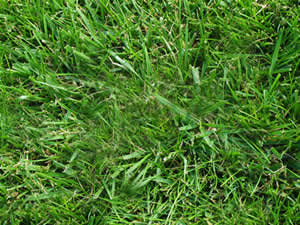
Growth, forming clumps
Treatment: MEDIUM-LOW
Cutting height: 40-65 mm
It is a species with bushy appearance of the most widely used in transition climates.
Remains green all year round and can withstand the high temperatures and lack of water better than all the other species cool season.
It is also resistant to most diseases typical of the species from the turf. It can grow in shaded areas. And is the species most used in Italy for making ornamental turfs.
General Characteristics
Leaf blade coarse, and with the rapid speed of settlement.
It resists drought, high temperatures and to wear.
Difficulty in recovery.
Cultivation Practices
Requires fertilization medium/low titer of nitrogen.
It tends to form the felt.
| possible exposure | temp. min GREEN | temp. min VITAL | temp. max exercise | environmental-climatic adaptability | |||||||||||
|---|---|---|---|---|---|---|---|---|---|---|---|---|---|---|---|
| N | S | Or | And | N-AND | N-OR | S-AND | S-OR | °C | °C | °C | plain | mountain | maritime | rural | urban |
| X | X | X | X | X | X | X | -5 | -15 | 40 | X | X | X | X | ||
Festuca Rubra
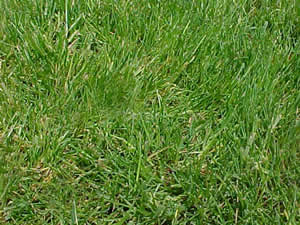
Growth: RIMATOZOSA or forming clumps
Care: LOW
The Cutting height: 25-65 mm
Among the species cool season is that it tolerates better the shade, the leaves are very thin.
Forms a very dense turf. When it is cut low the quality of the turf is high, with color from green intermediate dark green.
This species adapts well to cold climates, does not tolerate very high temperatures.
General Characteristics
On the foliar Lamina end and the average speed of the settlement.
Grows very well in shaded areas and even in those that are drought-tolerant.
Difficulty in recovery.
Cultivation Practices
Does not require great watering and requires nourishment low titer of nitrogen.
| possible exposure | temp. min GREEN | temp. min VITAL | temp. max exercise | environmental-climatic adaptability | |||||||||||
|---|---|---|---|---|---|---|---|---|---|---|---|---|---|---|---|
| N | S | Or | And | N-AND | N-OR | S-AND | S-OR | °C | °C | °C | plain | mountain | maritime | rural | urban |
| X | X | X | X | X | X | X | X | -10 | -20 | 30 | X | X | X | X | X |
Poa Pratensis
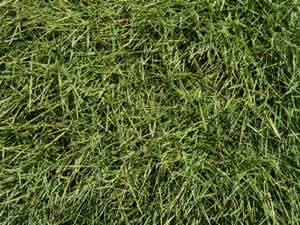
Growth: RHIZOMATOUS
Care: MEDIUM
Height of Cut: 25-50 mm
It is used for its medium texture, its color, usually dark, and its lateral growth.
It is quite demanding for the water, but in water shortage enters in dormancy and recover when conditions become more favourable.
It is a widespread species in the world and is characterized by an exceptional production of rhizomes. The turfs are of excellent quality, and prefer sunny areas.
General Characteristics
Slow settlement but with good recovery potential.
Prefers areas sunny but well-watered. It has good resistance to traffic.
Cultivation Practices
Requires irrigation and fertilizers in the medium limited in nitrogen.
It tends to form the felt.
| possible exposure | temp. min GREEN | temp. min VITAL | temp. max exercise | environmental-climatic adaptability | |||||||||||
|---|---|---|---|---|---|---|---|---|---|---|---|---|---|---|---|
| N | S | Or | And | N-AND | N-OR | S-AND | S-OR | °C | °C | °C | plain | mountain | maritime | rural | urban |
| X | X | X | X | X | X | X | -10 | -20 | 35 | X | X | X | X | X | |
Poa Trivalis
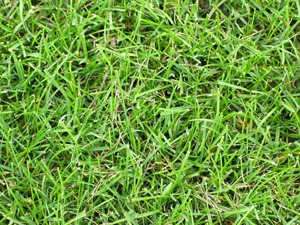
Growth: Slightly STOLONIFERA
Treatment: MEDIUM-LOW
Cutting height range: 20-40 mm
General Characteristics
Rapid settlement and the average recovery potential.
It prefers shaded areas and moist.
It is very sensitive to drought.
Cultivation Practices
Requires irrigation and fertilizers in the medium limited in nitrogen.
It tends to form the felt.
Lolium Perenne
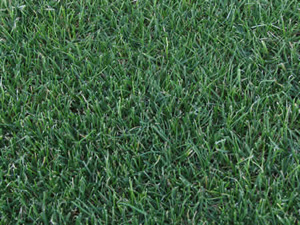
Growth, forming clumps
Care: MEDIUM
Height of Cut: 25-50 mm
General Characteristics
Quick installation but with a poor capacity for recovery and good resistance to impact.
Does not tolerate drought and is often used in mixtures.
Cultivation Practices
Need irrigation and fertilizers in the medium/high titer of nitrogen.
Bentgrass Stolonifera
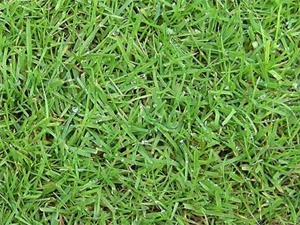
Growth: STOLONIFERA
Care: HIGH
Cutting height: 4-20 mm
It is the species most prized among the grasses for turfs.
Forms a carpet in a very compact, resistant to trampling, disease, and long-term.
For these characteristics, it is used in purity in the formation of the greens of the golf courses.
To fully express its characteristics, it requires loose soil and level that would allow cuts to very low facts, preferably with a lawn mower fitted with blades and helical.
General Characteristics
The slow speed of settlement; form a carpet of very high quality with a good resistance to wear.
Resists low temperatures, tolerating even stagnant water.
Cultivation Practices
It requires considerable irrigation, and it requires fertilizers with high levels of nitrogen.
It tends to form a felt, and is sensitive to fungal diseases.
Festuca Arundinacea
Macroterme
Warm season turfgrasses are adapted to climates that are warm or temperate.
The optimal growth temperature is between 25 °and 35 ° C.
These species grow more slowly at temperatures lower than 20 °C down to a stop at approximately 10 °C.
When the temperature drops below 0 °C they lose their green colour and are in vegetative rest.
The warm season turfgrasses, it most common are: Cynodon dactlylon, Paspalum vaginatum, Stenotaphrum secundatum and the various zoysia grasses.
They are characterized by considerable lateral growth by stolons and rhizomes, root system is very extensive, high capacity of recovery from stress, and exceptional resistance to high temperatures, drought and salinity.
Cynodon Dactylon
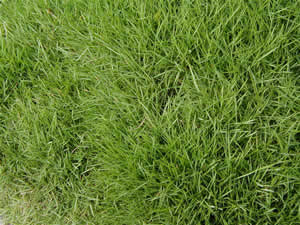
Growth: RIMATOZOSA or STOLONIFERA
Care: MEDIUM-HIGH
Cutting height: 5-40 mm
It is the species with most rapid growth on the side. The leaves are average in width. Forms a carpet mechanically pretty robust. It withstands high temperatures, drought and salinity.
It does not tolerate shade and, like other warm season turfgrasses, it stops growing at a temperature of 10°C.
When the temperature drops below 0°C it becomes dormant and loses the green colour.
General Characteristics
They are often employed hybrid of Cynodon Dactylon comm. (Bermudagrass).
Excellent speed of settlement by vegetative and excellent capacity recovery.
It resists very well to high temperatures, drought and salinity.
Cultivation Practices
It does not need large volumes of water.
The need of nitrogen, changes depending on the variety (between 15 and 75 kg N/ha per month of growth) and the need to control for the felt.
| possible exposure | temp. min GREEN | temp. min VITAL | temp. max exercise | environmental-climatic adaptability | |||||||||||
|---|---|---|---|---|---|---|---|---|---|---|---|---|---|---|---|
| N | S | Or | And | N-AND | N-OR | S-AND | S-OR | °C | °C | °C | plain | mountain | maritime | rural | urban |
| X | X | X | X | X | X | X | 0 | -10 | 45 | X | X | X | X | ||
Paspalum Vaginatum
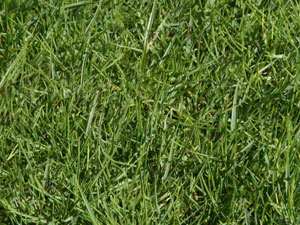
Growth: RIMATOZOSA or STOLINEFERA
Care: MEDIUM
Cutting height: 6-25 mm
It is a native species of the sub-tropics of eastern South America. It is naturalized in coastal areas on all continents.
The colour is intense green. Paspalum vaginatum is the turf more resistant to salinity, so it can be irrigated with sea water.
Very high also the tolerance to high temperatures and drought.
General Characteristics
Excellent speed of settlement.
It is the species that is best suited to saline soils.
Forms a lawn very dense.
Cultivation Practices
The need of fertilizers in the medium/high titer of nitrogen.
I need a control on the formation of the felt.
To allow a uniform of the rug is appropriate to irrigate.
| possible exposure | temp. min GREEN | temp. min VITAL | temp. max exercise | environmental-climatic adaptability | |||||||||||
|---|---|---|---|---|---|---|---|---|---|---|---|---|---|---|---|
| N | S | Or | And | N-AND | N-OR | S-AND | S-OR | °C | °C | °C | plain | mountain | maritime | rural | urban |
| X | X | X | X | X | X | X | 0 | -10 | 45 | X | XXX | X | X | ||
Stenotaphrum Secundatum
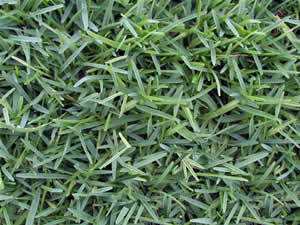
Growth: STOLONIFERA
Treatment: MEDIUM-LOW
Cutting height: 40-65 mm
It is a native species of Central America. Has a leaf very large light green in color. The growth is vigorous to the presence of large and robust stolons.
Between the macroterme is the most tolerant of shade. Good is the resistance to salinity, drought and high temperatures. It adapts well to the conditions of the mediterranean climate.
General Characteristics
Leaf blade coarse, quick settlement.
Good resistance to drought. Forms a carpet of low quality.
Cultivation Practices
Need fertilizing in medium-to-high titer of nitrogen.
I need a control on the formation of the felt and doesn't need large volumes of water.
| possible exposure | temp. min GREEN | temp. min VITAL | temp. max exercise | environmental-climatic adaptability | |||||||||||
|---|---|---|---|---|---|---|---|---|---|---|---|---|---|---|---|
| N | S | Or | And | N-AND | N-OR | S-AND | S-OR | °C | °C | °C | plain | mountain | maritime | rural | urban |
| X | X | X | X | X | X | X | -2 | -10 | 45 | X | X | X | X | ||
Zoysia Japonica
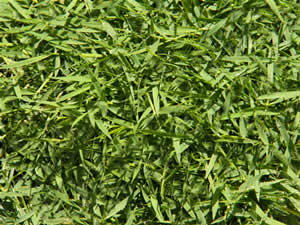
Growth: STOLONIFERA or RIMATOZOSA
Care: MEDIUM
Cutting height: 10-25 mm
It is a species of asian origin, and form a turf of good quality, width of leaf blade medium, green colour is quite clear.
Produces stolons and rhizomes are very robust. It has a good resistance to high temperatures. Enter winter dormancy, with the loss of green colour when temperatures drop below -2/-3 °C.
General Characteristics
It is used in the species Japonica, Pounds and Termifolia.
Has a settlement slow-particularly if sown.
It resists well to drought and high temperatures; does not tolerate stagnant water.
He has a good recovery potential.
Cultivation Practices
Need fertilizing in medium-to-high titer of nitrogen and are necessary interventions for the control of the felt.
The foliar laminae, very hard, sometimes, can ruin the blades of cutting machines.
| possible exposure | temp. min GREEN | temp. min VITAL | temp. max exercise | environmental-climatic adaptability | |||||||||||
|---|---|---|---|---|---|---|---|---|---|---|---|---|---|---|---|
| N | S | Or | And | N-AND | N-OR | S-AND | S-OR | °C | °C | °C | plain | mountain | maritime | rural | urban |
| X | X | X | X | X | X | X | -2 | -10 | 40 | X | X | X | X | ||
Zoysia Matrella
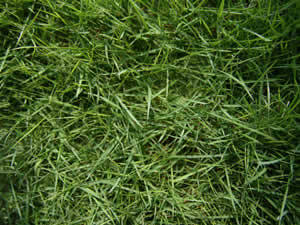
Growth: STOLONIFERA or RIMATOZOSA
Care: AVERAGE
Cutting height: 10-25 mm
It is a widespread species in the east. The turf is characterized by thin leaves and high density.
Resistance to salinity is very high. If you do not cut tends to form a thick layer, very durable with properties of thermal and acoustic insulation.
The growth stops at about 9 °C. When the temperature falls below -2°C it loses the green colour.
| possible exposure | temp. min GREEN | temp. min VITAL | temp. max exercise | environmental-climatic adaptability | |||||||||||
|---|---|---|---|---|---|---|---|---|---|---|---|---|---|---|---|
| N | S | Or | And | N-AND | N-OR | S-AND | S-OR | °C | °C | °C | plain | mountain | maritime | rural | urban |
| X | X | X | X | X | X | X | -2 | -10 | 40 | X | X | X | X | ||
Zoysia Tenuifolia
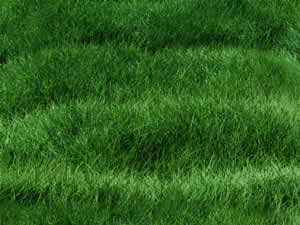
Growth: STOLONIFERA or RIMATOZOSA
Care: AVERAGE
Cutting height: 10-25 mm
It is characterized by leaves that are very fine and high-density. The growth of stolons and rhizomes is very slow. The cutting needs are minimal and if left to grow freely, it forms a blanket is very dense.
It is the ultimate warm season turfgrass to lose the green colour when temperatures drop below zero.
| possible exposure | temp. min GREEN | temp. min VITAL | temp. max exercise | environmental-climatic adaptability | |||||||||||
|---|---|---|---|---|---|---|---|---|---|---|---|---|---|---|---|
| N | S | Or | And | N-AND | N-OR | S-AND | S-OR | °C | °C | °C | plain | mountain | maritime | rural | urban |
| X | X | X | X | X | X | X | -2 | -10 | 40 | X | X | X | X | ||


